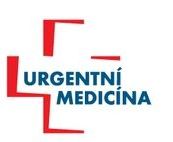INTRODUCTION
Editorial
Jana Šeblová
Contents
EDUCATION, EXPERIENCE
Introducing prehospital ultrasound examination into daily practice of the Emergency Medical Service of the Central Bohemian Region
Zdeněk Tlustý, Martina Perná, Roman Škulec
Abstract
EMS of Central Bohemian Region had introduced the board portable ultrasonography devices for use in daily practice in the prehospital emergency care. The devices used are compact ultrasonographs GE-VScan with dual sector/linear probe. The devices were placed at EMS district stations. This article describes the scheme of training, possibilities of practical use for diagnostics and therapeutical procedures in EMS practice. We use modified emergency protocols FATE, FEEL, BLUE and FAST. The author describes individual clinical training in hospitals under supervision of clinical specialists which is provided after initial traininng. The first experience during 3 and half months´s praktice since start of this project are also described. Based on the ultrasound examination therapeutical management had been changed in 5 cases and once the difficult i.v. ultrasound guided access was in the field.
CLINICAL TOPICS AND RESEARCH
Prehospital Remote Ischemic Conditioning for STEMI Patients Going to PCI
Francis Mencl
Abstract
Remote ischemic conditioning using a blood pressure cuff to induce ischemia away from the heart reduces morbidity and mortality in STEMI patients undergoing reperfusion. A simple technique which can be performed in the back of an ambulance or in the emergency department while getting the patient ready for PCI or while starting thrombolytics; it reduces acute kidney injury, improves myocardial salvage significantly reducing the damage from the heart attack and the likelihood of CHF and dysrhythmia during and following intervention. These effects persist long after the procedure and patients are less likely to experience another major cardiac or cerebral event in the months to years following. In addition to reduced mortality and improved quality of life there is a measurable reduction in health care expense.
Anaphylaxis in the context of Evidence Based Medicine
Patrik Christian Cmorej, Jaroslav Pekara, Robert Babeľa, Alexandra Mamová, Marcel Nesvadba, Oto Slowik
Abstract
Anaphylaxis is intensified allergic reaction that leads to an immediate threat to life. Currently, there were several new data published at the field of epidemiology, pathophysiology, risk factors and treatment of anaphylaxis. The key attribute in the management of anaphylaxis is still early intramuscular adrenaline administration. The article provides brief overview of newly published data in the area of epidemiology, pathophysiology, risk factors, laboratory diagnosis and treatment of anaphylaxis.
Guidelines for distribution of antidotes, antisera and antitoxines at various levels of health care providers
Jana Šeblová, Sergej Zacharov, Hana Makovcová, Daniela Pelclová
ETHICS, PSYCHOLOGY, LAW
The effects of burnout syndrome among staff of Integrated Rescue System
Denisa Ralbovská, Rebeka Ralbovská
Abstract
The article deals with the issue of burnout among staff of the Integrated Rescue System. This theme is relevant as the work of all part sof Integrated Rescue System is demanding, especially for psychological burden that affects professionals. The review based on scientific literature is presented in the theoretical part of the paper and burnout and its symptoms are defined here. The thesis of the research part aims to provide a comprehensive view on the issue of burnout and members of the Integrated Rescue System. Research is based on analysis of completed anonymous questionnaires that were distributed among 288 respondents. Data are processed in the empirical part in the form of tables and graphs. The conclusion summarizes the results and recommendations in order to minimise negative impacts on professionals of the Integrated Rescue System.
INFORMATION
20th year of Rallye Rejvíz is over
Zdeněk Tlustý
EMS 2016 Copenhagen 30. 5. – 1. 6. 2016: „It takes a system to save a life“
Jana Šeblová
A book review “Disaster medicine compendium”
Josef Štorek
